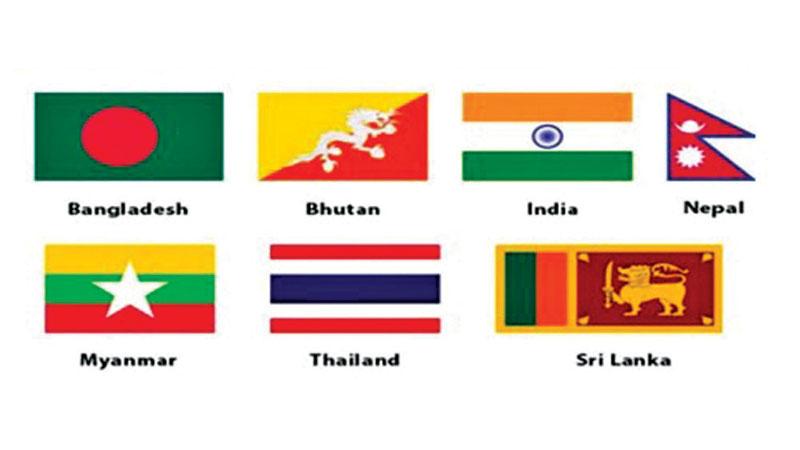
Kolkata - BIMSTEC (Bay of Bengal Initiative for Multi-Sectoral Technical and Economic Cooperation) has generated new hope with renewed political commitment of member states and faith in institutions.
“It is time for re-imagining BIMSTEC with the proposed BIMSTEC Free Trade Area without further delay. That will constitute the crucial first step towards economic integration of the region,” Secretary General of BIMSTEC, M. Shahidul Islam told the Kolkata Colloquium last week.
Besides, trade facilitation measures such as simplification of Customs procedures, business visa facilitation and mutual recognition arrangements should be made priorities, he added.
BIMSTEC with over 1.6 billion people and a combined GDP of over three trillion US dollars is one of the fastest growing regions in the world. But these countries do 94% of their international trade with non-members of BIMSTEC, and the remaining 6% trade takes place within themselves, compared to 24% for ASEAN and 64% for the EU. The BIMSTEC Trade Negotiating Committee has held 21 rounds of negotiations to finalise the text of the Agreement on Trade in Goods but to no avail.
Islam who spoke at the ‘Kolkata Colloquium-Reimagining BIMSTEC’ said, BIMSTEC must leverage on its unique geographical location to act as the bridge between South and Southeast Asia by strengthening physical, economic and people-to-people connectivity.
“We should aim for a road network to transport people, goods and services as well as harmonisation of rules and regulations to accommodate seamless movement from India to the east coast of Vietnam in the shortest possible time. The ADB-assisted study titled ‘BIMSTEC Transport Connectivity Master Plan’ and the proposed BIMSTEC Motor Vehicle Agreement will greatly help in realising this vision.”
He said, the importance of the Bay of Bengal in strengthening maritime and trade connectivity cannot be overemphasised. Member States have finalised the draft BIMSTEC Coastal Shipping Agreement to facilitate the movement of cargo vessels within 20 nautical miles from the coast to enhance transport connectivity in the region.
To strengthen maritime connectivity, Ranong Port of Thailand has signed an MoU with India’s three ports (Chennai, Vishakhapatanam and Kolkata), and Sri Lanka’s Hambantota Port.
Similar MoUs are also proposed with Chattogram Port in Bangladesh and Sittwe Port in Myanmar. Last month, a BIMSTEC Ports Conclave was hosted by India in Vishkhapatanam to develop a platform to strengthen port-led maritime connectivity.
Connectivity will remain incomplete without people-to-people connectivity. “We want to imagine a BIMSTEC that will stop movement of terrorists, criminals, drug traffickers and human trafficking on the one hand, and encourage seamless movement of bona fide businessmen, investors, scholars and tourists across the region on the other. The Member States have agreed to hold the next meeting of the BIMSTEC Expert Group on Visa Matters in Colombo. Though slowly, BIMSTEC Member States are moving towards easing visa and immigration procedures to facilitate intra-regional movement of people. For instance, India is the most preferred travel destination for the people of Bangladesh, be it for medical, tourism or pilgrimage purposes.”
BIMSETC was established on the premise that “the cherished ideals of peace, freedom, and economic well-being are best attained by fostering greater understanding, good neighbourliness and meaningful cooperation among the countries of the same sub-region already bound together by ties of history and culture.”
The historical and cultural ties of the Bay of Bengal region were based on tolerance and multiculturalism, which allowed the region to become a melting pot of people with different ethnic, linguistic and religious backgrounds.
Unfortunately, no significant efforts are being taken by the Member States to promote cultural exchange, cultural heritage preservation, or the promotion of multiculturalism.
The repeated attempts by Bangladesh to host the second BIMSTEC Ministerial Meeting on Culture and the first BIMSTEC Cultural Festival had to be postponed due to lack of response from Member States.
“BIMSTEC cannot afford to neglect nourishing the historical and cultural ties if we were to contain the influence of extremist ideologies coming from the external environment as well as minimise the danger of mono-culturalism developing within the region,” he said.
